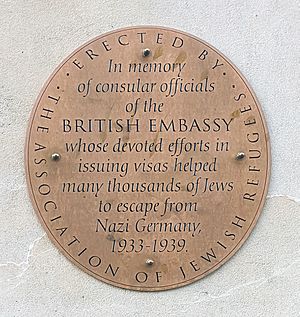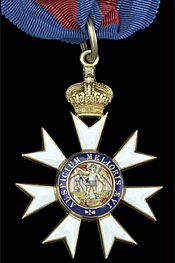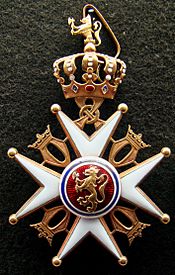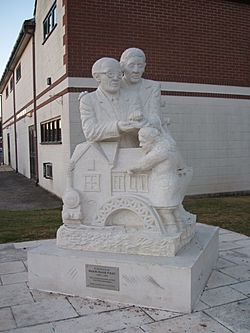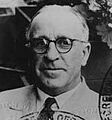Frank Foley facts for kids
Quick facts for kids
Francis Edward Foley
|
|
|---|---|
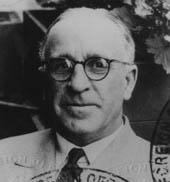 |
|
| Born |
Francis Edward Foley
24 November 1884 Highbridge, Somerset, England
|
| Died | 8 May 1958 (aged 73) Stourbridge, (now West Midlands), England
|
| Nationality | English |
| Employer | Government |
| Spouse(s) |
Katharine Eva
(m. 1921) |
Major Francis Edward Foley (born November 24, 1884 – died May 8, 1958) was a brave British spy. He worked for the Secret Intelligence Service (also known as MI6).
While working at the British Embassy in Berlin, he pretended to be a passport officer. But his real job was to help thousands of Jewish families escape from Nazi Germany. He did this after a terrible event called Kristallnacht and before World War II began. Frank Foley is remembered as a British Hero of the Holocaust. He is also called a Righteous Among the Nations by Israel, which is a special honor for non-Jews who saved Jews during the Holocaust.
Contents
Frank Foley's Early Life and Education
Frank Foley was born in Highbridge, Somerset, England. He was the third son in his family. He was a very smart student and won a scholarship to Stonyhurst College. This is a special school run by Jesuits, a Catholic religious group.
After school, he went to a Catholic seminary in France. He planned to become a priest. But he later decided to study Classics at the Université de France. He traveled a lot in Europe and became very good at speaking French and German. These language skills would be very important later in his life.
Joining the Secret Service
Frank Foley joined the British Army in 1917. Because he was good with languages and had traveled widely, the War Office noticed him. They encouraged him to join the Intelligence Corps. This was a group that gathered secret information.
In 1918, he became part of a small team. Their job was to find and manage secret agents in France, Belgium, and the Netherlands. After World War I ended, he worked in Germany for a short time. In 1921, he left the army as a captain.
Working as a Spy in Berlin
After leaving the army, Foley was offered a job in Berlin. He was officially a "passport control officer." But this was just a cover for his real job: he was the head of the British Secret Intelligence Service (MI6) in Berlin. During the 1920s and 1930s, he found secret agents. He also gathered important information about Germany's military plans.
Saving Jewish Families
Frank Foley is best known for saving thousands of Jewish people from Nazi Germany. He is often called a "British Schindler." Oskar Schindler was another person who saved many Jews during the Holocaust.
At a famous trial in 1961, Foley was called a "Scarlet Pimpernel." This means he risked his own life to save others. He did not have special protection as a diplomat. This meant he could have been arrested at any time. But he still "bent the rules" to help Jews. He would stamp passports and give out visas. This allowed Jewish people to escape "legally" to Britain or Mandatory Palestine, which was controlled by the British.
Sometimes, he did even more. He would go into internment camps to get Jews out. He even hid some in his own home. He also helped them get fake passports. One aid worker said he saved "tens of thousands" of people from the Holocaust.
He worked with two other brave people: Wilfrid Israel and Hubert Pollack.
- Pollack had contacts with the Gestapo, the Nazi secret police.
- Wilfrid Israel had money and connections to people who could help from other countries.
- Foley was the one who could give out visas.
People would ask Wilfrid Israel for help to free their family members from camps. Wilfrid would give money to Pollack. Pollack would get the necessary documents. Then, Foley would give visas to those people. Pollack and Israel also told Foley if any Gestapo agents were pretending to be visa applicants. This amazing story is shown in the film The Essential Link: The Story of Wilfrid Israel.
Frank Foley During World War II
In 1939 and 1940, Foley was working in Norway. This was until the Germans invaded. He then helped the Norwegian military leader, General Otto Ruge. Foley helped Ruge contact Britain to ask for help against the invaders. Foley even had his own radio to send messages to London. His assistant, Margaret Reid, was an expert at coding messages.
Foley and Reid had to burn important documents at the British embassy in Oslo. They were later safely taken away by the Royal Navy. For his help in Norway, Foley received a special award from Norway called the Knight's Cross of the Order of St. Olav.
On January 1, 1941, he received another honor, the Companion of the Order of St Michael and St George (CMG). Later in 1941, he was given the job of questioning Rudolf Hess. Hess was Hitler's deputy leader who had flown to Scotland. After Hess went to the hospital, Foley helped MI5 and MI6 manage a network of double agents. This was called the Double Cross System.
Later Life and Recognition
After World War II, Foley returned to Berlin. He worked to find Nazi war criminals. In 1949, he retired and moved to Stourbridge, England. He passed away there in 1958 and is buried in Stourbridge Cemetery.
In 1961, his wife, Katharine Eva Foley, shared his amazing story in a newspaper. She wrote about how he tried to save as many Jews as he could. If he couldn't find a reason for a visa to Britain, he would ask friends in other embassies to help.
Remembering a Hero
Frank Foley has received many honors for his bravery:
- He was mentioned for his service in World War I.
- He received the Norwegian Order of St. Olav Knight's Cross in 1941.
- He was made a Companion of the Order of St Michael and St George in 1941.
- In 1999, Israel gave him the title of Righteous Among the Nations after he had passed away.
- In 2010, the British Government named him a British Hero of the Holocaust.
In 2004, a special plaque was placed in his memory in Stourbridge. The next year, people from his birthplace, Highbridge, raised money for their own tribute. A statue of Frank Foley was made and unveiled on VE Day, which is also the anniversary of his death. A road between Highbridge and Burnham-on-Sea was named the 'Frank Foley Parkway' in 2009.
On November 24, 2004, a plaque honoring Foley was unveiled at the British Embassy in Berlin. This was on his 120th birthday. Many people attended, including his family and Jewish organizations. The Foreign Secretary, Jack Straw, praised Foley's courage. He said Frank Foley risked his life and was a true British hero.
In 2009, a garden was dedicated to him in London. In 2012, another plaque was unveiled at a Jewish cemetery in London. A bus in the West Midlands is also named after him.
On September 18, 2018, Prince William, Duke of Cambridge, unveiled a statue of Major Frank Foley in Stourbridge. This was a special moment to remember his incredible actions.
Images for kids
 | John T. Biggers |
 | Thomas Blackshear |
 | Mark Bradford |
 | Beverly Buchanan |


